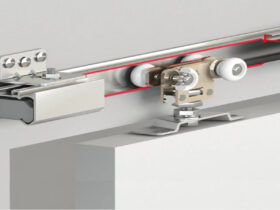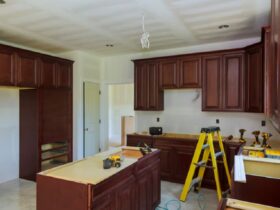With the growth of urbanization, noise pollution has become a major concern for both residential and commercial buildings. High levels of noise can be harmful to human health, causing stress, sleep disturbance, and even hearing loss. One of the main sources of noise in buildings is HVAC systems. While they are necessary for providing comfort and ventilation, they can also generate significant levels of noise. This is where zoning comes into play as an effective solution to control HVAC noise. So, without any further ado, let’s dive into the topic and explore the effects of zoning on HVAC noise and sound control.
What is Zoning?
Zoning refers to the division of a building into separate areas or zones that can be controlled independently. This means that each zone will have its own thermostat to regulate temperature, airflow, and other settings based on individual needs. For example, in a commercial building, different floors or rooms can be zoned separately to cater to the varying needs of occupants.
The Impact of Zoning on HVAC Noise
One of the major ways zoning affects HVAC noise is by reducing it. By dividing a building into smaller zones, the load on the system is reduced, which in turn decreases the overall noise level. This means that instead of one large HVAC system working at full capacity to serve the entire building, multiple smaller systems will work together to maintain a comfortable environment. This can significantly reduce noise levels and create a quieter atmosphere.
Sound Control through Zoning
Zoning not only reduces HVAC noise but also allows for better sound control in buildings. By zoning different areas separately, it becomes easier to manage the sound levels in each zone. For instance, in a commercial building, areas with higher noise levels, such as a cafeteria or meeting room, can be zoned separately to prevent the sound from traveling to other quieter zones. This creates a more pleasant and peaceful environment for occupants.
Zoning Strategies for HVAC Noise Control
There are various zoning strategies that can be implemented to control HVAC noise in buildings effectively. Here are some of the most common ones:
- Zone Dampers:These are devices that can be installed in ducts to control the flow of air to different zones. They can also help reduce noise by providing additional insulation.
- Variable Speed Drives (VSD):VSDs allow the HVAC system to adjust its speed based on demand, resulting in lower noise levels. They are especially useful for buildings with varying occupancy levels throughout the day.
- Acoustical Barriers:These can be installed to create physical barriers between zones, reducing sound transmission and increasing privacy. They are especially useful in buildings with open floor plans.
- Zoning by Time:This strategy involves programming the HVAC system to operate at different times of the day for different zones. For example, unoccupied areas can be programmed to have lower airflow or shut off completely, reducing noise levels.
Seeking Professional Help
While zoning can be an effective solution to control HVAC noise, it is important to seek professional help for proper design and installation. Licensed HVAC contractors in Atlanta will not only ensure that the zoning system is installed correctly but also help determine the most appropriate zoning strategy for your building. They can also provide regular maintenance to ensure optimal performance and noise control. You just need to find the right contractor for your specific needs.
Conclusion
Zoning is an effective solution for controlling HVAC noise in buildings. It not only reduces noise levels but also allows for better sound control in individual zones. By implementing zoning strategies and understanding what an HVAC contractor does, you can create a more comfortable and peaceful environment for building occupants and reduce the negative effects of noise pollution on human health. So go ahead and give zoning a try!





